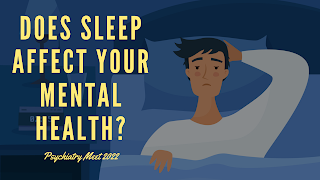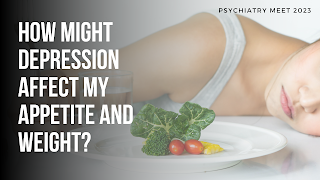Does Sleep affect your Mental Health?
It's
no secret that getting enough sleep is essential for optimal physical and
mental health. In the short term, sleep deprivation might make you irritated
and weary, but it can also have major long-term health repercussions. Sleep
deprivation has been related to a range of negative health outcomes, including
heart disease, type 2 diabetes, and depression.
Sleep
disorders can be caused by psychiatric ailments, and sleep abnormalities can
increase the symptoms of many mental illnesses, including depression, anxiety,
and bipolar disorder.
During
sleep, brain activity fluctuates, increasing and decreasing across the many
sleep stages that make up the sleep cycle. Overall brain activity slows during
NREM (non-rapid eye movement) sleep, but there are short bursts of energy.
Because brain activity increases fast during REM sleep, this stage is connected
with more intense dreaming. The brain's processing of emotional information is
aided by enough sleep, particularly REM sleep. The brain works to assess and
store thoughts and memories during sleeping, and it appears that not getting
enough sleep is particularly detrimental to the consolidation of pleasant
emotional content. This has been linked to mental health issues and the
severity of such diseases, including the risk of suicidal thoughts or
behaviors.
Poor sleep has numerous harmful consequences, including a significant influence on mental and emotional health. Sleep issues are thought to cause or contribute to the emergence of a variety of mental diseases, including sadness and anxiety, and are often a symptom or result of an underlying psychological condition.




Comments
Post a Comment